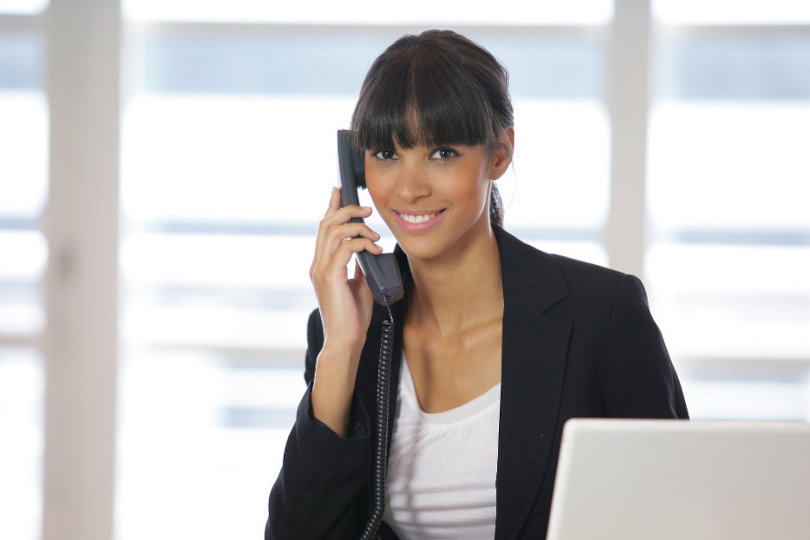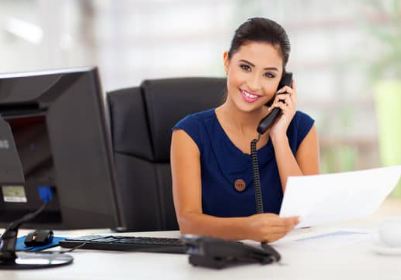All Categories
Featured
Table of Contents
- – What Is The Best A Guide To Using Automated Ans...
- – What Is The Best How Does An Answering Service...
- – Which Is Best Outsource Answering Service Comp...
- – What Is The Best Top Answering Service In Aus...
- – What Is The Best Phone Answering Services - R...
- – What Is The Best What Is A Telephone Answeri...
What Is The Best A Guide To Using Automated Answering Systems Product?
This device and its successors were created by Sava Jacobson, an electrical engineer with a private consulting business. While early answering machines utilized magnetic tape technology, many contemporary equipment utilizes solid state memory storage; some gadgets use a mix of both, with a solid-state circuit for the outbound message and a cassette for the incoming messages.
"toll conserving" below) (virtual answering service). This is helpful if the owner is evaluating calls and does not wish to consult with all callers. In any case after going, the calling party should be informed about the call having actually been addressed (in most cases this begins the charging), either by some remark of the operator, or by some greeting message of the TAD, or addressed to non-human callers (e.
This holds particularly for the Little bits with digitally stored welcoming messages or for earlier machines (before the rise of microcassettes) with a special unlimited loop tape, different from a 2nd cassette, devoted to recording. There have been answer-only gadgets without any recording capabilities, where the welcoming message had to inform callers of a state of present unattainability, or e (virtual telephone answering).
What Is The Best How Does An Answering Service Work?

about schedule hours. In recording Littles the welcoming normally consists of an invite to leave a message "after the beep". A voice mail that utilizes a microcassette to record messages On a dual-cassette answerphone, there is an outgoing cassette, which after the specified number of rings plays a pre-recorded message to the caller.

Single-cassette voice mail contain the outbound message at the beginning of the tape and inbound messages on the staying area. They initially play the announcement, then fast-forward to the next available space for recording, then record the caller's message. If there are lots of previous messages, fast-forwarding through them can trigger a substantial delay.
This beep is frequently referred to in the greeting message, asking for that the caller leave a message "after the beep". TADs with digital storage for the recorded messages do not reveal this hold-up, of course. A little bit may use a remote control center, whereby the answerphone owner can ring the home number and, by going into a code on the remote telephone's keypad, can listen to taped messages, or delete them, even when away from house.
Which Is Best Outsource Answering Service Company Sri Lanka Lg Or Whirlpool

Therefore the device increases the number of rings after which it answers the call (generally by 2, resulting in four rings), if no unread messages are currently kept, but answers after the set variety of rings (typically two) if there are unread messages. This allows the owner to discover whether there are messages waiting; if there are none, the owner can hang up the phone on the, e.
Some machines likewise permit themselves to be remotely triggered, if they have been switched off, by calling and letting the phone ring a particular large number of times (typically 10-15). Some company abandon calls currently after a smaller number of rings, making remote activation difficult. In the early days of Littles a special transmitter for DTMF tones (dual-tone multi-frequency signalling) was regionally needed for remote control, since the formerly used pulse dialling is not apt to communicate suitable signalling along an active connection, and the dual-tone multi-frequency signalling was carried out step-by-step.
Any inbound call is not recognizable with respect to these residential or commercial properties in advance of going "off hook" by the terminal equipment. So after going off hook the calls must be switched to appropriate devices and only the voice-type is right away available to a human, however maybe, nonetheless need to be routed to a TAD (e.
What Is The Best Top Answering Service In Australia - 2023 Reviews For Me
What if I told you that you do not need to really get your device when answering a customer call? Somebody else will. So convenient, right? Responding to call doesn't require somebody to be on the other end of the line. Effective automated phone systems can do the trick just as efficiently as a live representative and in some cases even better.
An automatic answering service or interactive voice action system is a phone system that communicates with callers without a live individual on the line - local phone answering service. When business utilize this innovation, consumers can get the answer to a concern about your organization merely by utilizing interactions established on a pre-programmed call circulation.
Although live operators upgrade the customer care experience, many calls do not require human interaction. A simple documented message or instructions on how a customer can retrieve a piece of information generally solves a caller's immediate need - virtual telephone answering. Automated answering services are a basic and reliable method to direct incoming calls to the best individual.
What Is The Best Phone Answering Services - Ruby Receptionist Services?
Notice that when you call a business, either for assistance or product questions, the very first thing you will hear is a pre-recorded voice greeting and a series of options like press 1 for client service, press 2 for queries, and so on. The pre-recorded alternatives branch out to other options depending on the customer's choice.
The phone tree system helps direct callers to the right person or department using the keypad on a cellphone. In some circumstances, callers can utilize their voices. It's worth noting that auto-attendant alternatives aren't limited to the 10 numbers on a phone's keypad. Once the caller has actually selected their very first alternative, you can create a multi-level auto-attendant that utilizes sub-menus to direct the caller to the right type of assistance.
The caller does not need to communicate with an individual if the auto-attendant phone system can manage their concern. The automatic service can route callers to a worker if they reach a "dead end" and require support from a live agent. It is expensive to work with an operator or executive assistant.
What Is The Best What Is A Telephone Answering Service And What Are The ... You Can Buy
Automated answering services, on the other hand, are significantly less costly and provide considerable cost savings at approximately $200-$420/month. Even if you do not have actually dedicated personnel to handle call routing and management, an automated answering service enhances productivity by allowing your team to focus on their strengths so they can more efficiently spend their time on the phone.
A sales lead routed to client service is a lost shot. If a consumer who has item concerns reaches the wrong department or receives incomplete answers from well-meaning workers who are less trained to handle a specific type of question, it can be a cause of aggravation and dissatisfaction. An automated answering system can minimize the number of misrouted calls, thereby assisting your workers make much better usage of their phone time while releasing up time in their calendar for other tasks.
With Automated Answering Systems, you can develop an individualized experience for both your staff and your callers. Make a recording of your primary welcoming, and simply update it routinely to show what is going on in your organization. You can develop as numerous departments or menu options as you desire.
Table of Contents
- – What Is The Best A Guide To Using Automated Ans...
- – What Is The Best How Does An Answering Service...
- – Which Is Best Outsource Answering Service Comp...
- – What Is The Best Top Answering Service In Aus...
- – What Is The Best Phone Answering Services - R...
- – What Is The Best What Is A Telephone Answeri...
Latest Posts
Specialist 24/7 Answering Service Near Me
Virtual Receptionist Near Me (Brisbane)
Detailed Virtual Reception Solutions – QLD
More
Latest Posts
Specialist 24/7 Answering Service Near Me
Virtual Receptionist Near Me (Brisbane)
Detailed Virtual Reception Solutions – QLD